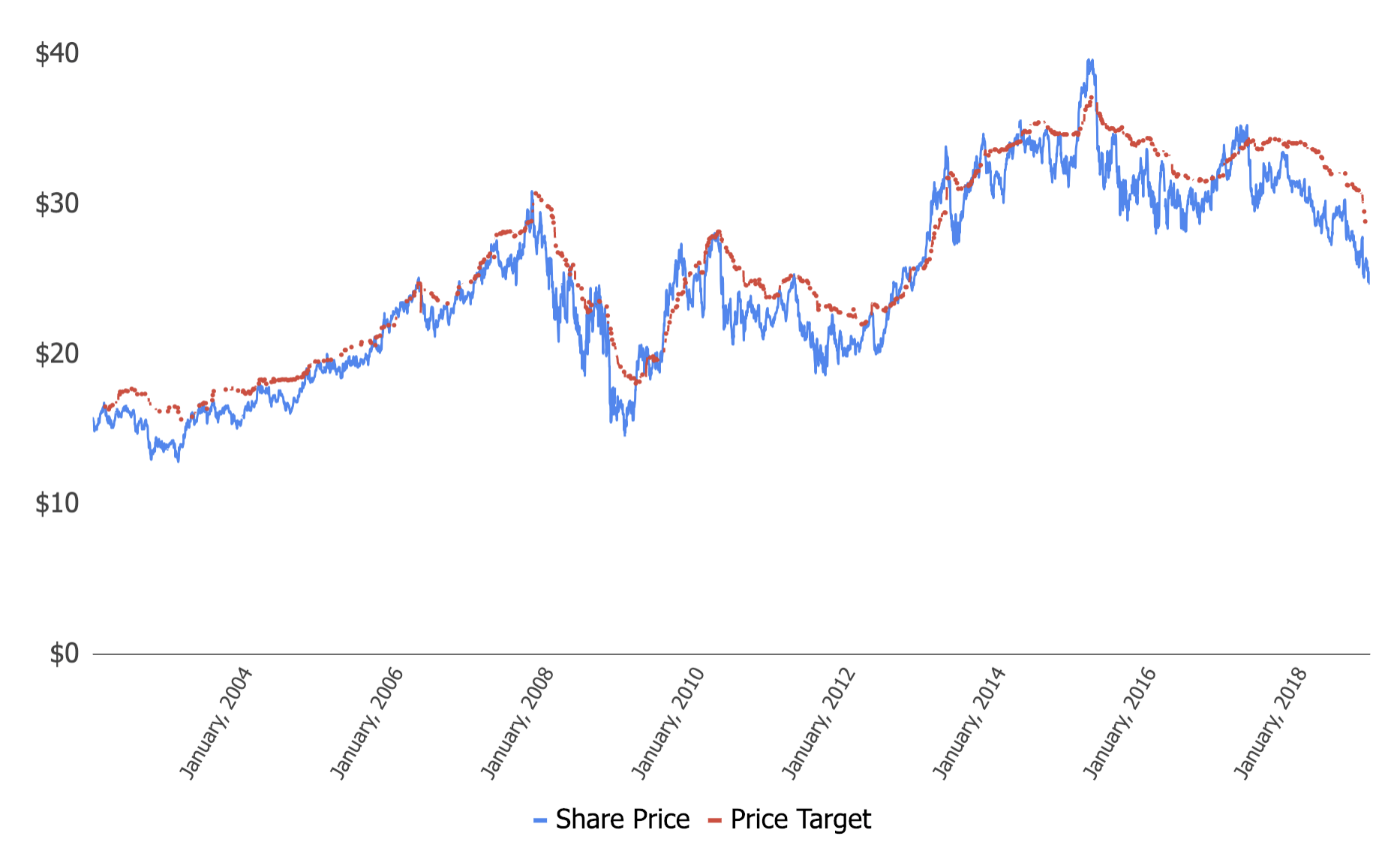Westpac Banking Corp
(ASX: WBC) shares have taken a bath in 2018 – falling around 23% from its high in January.
However, according to data from The Wall Street Journal, just 3 of the 16 analysts surveyed are “underweight” or have a “sell” rating. Three months ago, just two were negative — Westpac shares have fallen since then.
So either the market is completely wrong about its value, or analysts have drunk some of the sweet sweet optimism juice.
Before we get to the juicy stuff, let’s make sure everyone is on the same level…
Who is Westpac?
Westpac Banking Corporation, more commonly known as Westpac, is one of Australia’s ‘Big Four’ banks and a financial-services provider headquartered in Sydney. It is one of Australia’s largest lenders to homeowners, investors, individuals (via credit cards and personal loans) and business. Its name is a mash-up of “Western” and “Pacific”.
Property, Franking Credits, Royal Commission, Interest Rates…
If you have tuned into the financial news lately, you’ll know that Westpac and their brethren over at Commonwealth Bank of Australia (ASX: CBA) et al., (2018) have faced all kinds of bad press.
Property prices are declining, franking credits could be scrapped, the banks are being fined and broken apart by the Royal Commission and interest rates are going up.
In other words, it’s as if each of the good things that helped bank shares rebound from the GFC have turned on their head.
Should You Trust Analyst Forecasts?
When uncertainty abounds many investors find comfort in the fact that there are really smart professionals in the industry. And if we’re lucky enough (or pay enough) we can lean on these experts to deliver unique insights for us.
Economists are a good example of people we see and hear on the radio. They provide forecasts that — I believe — even they know are based on hogwash assumptions. “Economists have predicted 9 of the last 2 recessions”, as they say.
Investment analyst price targets are another false positive. Research from A.Stotz Investment Research suggests professional analyst profit forecasts are both optimistic and wrong. How wrong? In 2008 — during the GFC — they were wrong by 55%.
The issue in my mind is analysts use their short-term (3 months – 12 months) forecasts to create “price targets”, and their clients believe these targets will be hit within a year.
(As an aside, I make all of these issues clear in my free tutorials on share valuation.)
How Wrong Have Analysts Been On Westpac Shares?
Now, before you think I’m talking my own book, let’s compare Westpac’s share price to analysts estimates of value over time.

Focus on the distance between the red line (the average analyst forecast) and blue line (share price). As we can see, the line of analyst price targets is consistently quite tight to prevailing share price, which you would expect from a blue chip that doesn’t grow much.
However, you’ll also glean from the chart that analysts — who are purposefully trying to set price targets — seem to lag the share price. This is especially true in recent years.
What I mean is, analysts seem pessimistic on the way up and extremely optimistic on the way down. To me this just reinforces that analysts are not gods, they’re often wrong and it can be dangerous to blindly follow what they say.
Analyst Research Can Help
Before I sound too negative, I think analyst research can help you make a better investment decision. I use it.
There are two ways I think it helps:
- To understand what other people expect from a company, and predict how sentiment might change when they’re wrong.
- To build your knowledge of a business and its strategy. In my opinion, the best part of an investment analyst’s report is the section ‘about the company’.
Takeaways
There are a few takeaways from this article but I think the most important thing is not trying to outsmart the system and recognising that it’s the businesses you should focus on — not the share price.
Secondly, it’s important to recognise that the best advice and investment ideas change infrequently. Finance and investment columnist Jason Zweig says his job is to say the same thing 200 different ways every year.
Thirdly, it’s important that you make an informed long-term decision. And if you’re not capable of doing that, find someone you can trust and invest with them.
If you’re wondering what I think of Westpac — as a self-titled analyst — I recently wrote a piece on the bank here. Alternatively, there are two of my favourite ASX small-cap shares in the free report below.
2 of My Favourite ASX Small Caps
[ls_content_block id=”14947″ para=”paragraphs”]









